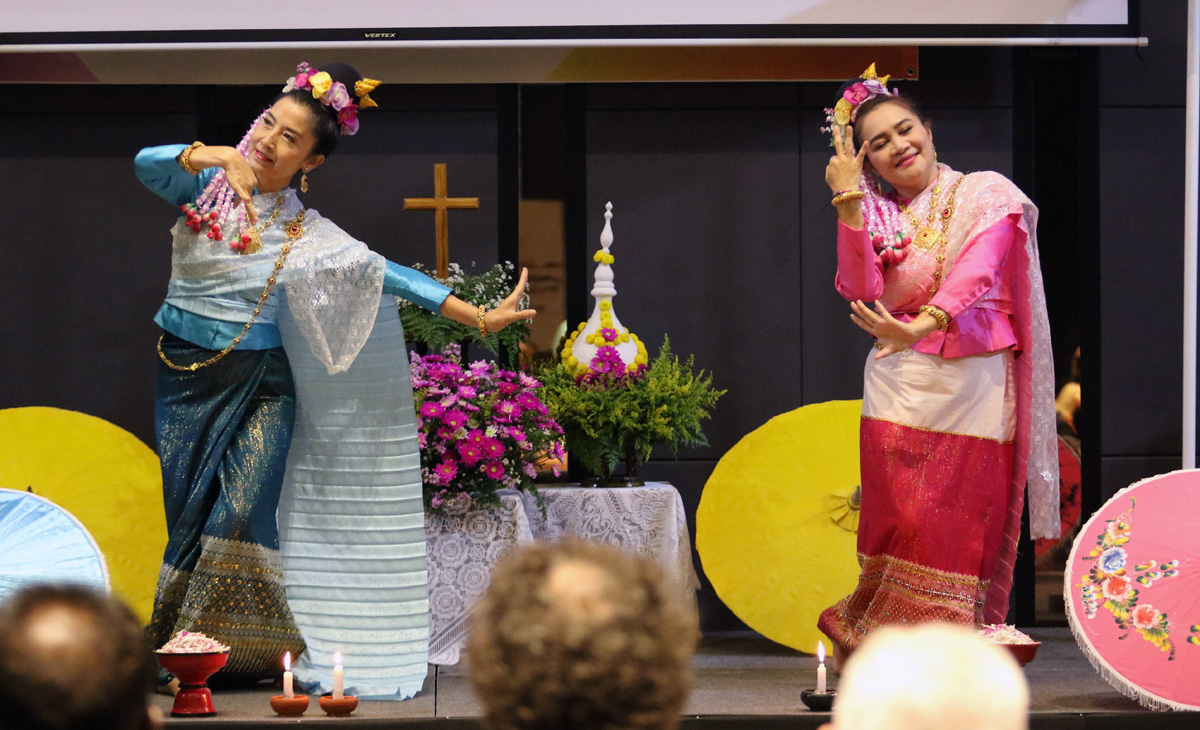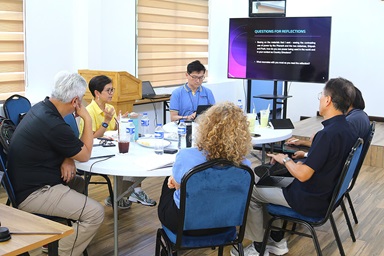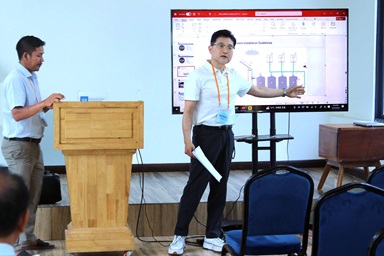Key points:
- Methodists from across Asia came together Oct. 23-27 in Bangkok for the third Asia Upper Room leadership seminar and to celebrate the 70th anniversary of the Thai Upper Room Edition.
- Presenters covered topics like financial models, fundraising, and accurate and culturally appropriate translation, as well as the daily production process.
- The Upper Room daily devotional is now translated into 34 languages and distributed in over 100 countries worldwide with a bimonthly print circulation of over 2 million copies.
Methodists from across Asia came together Oct. 23-27 in Bangkok, Thailand, for the third Asia Upper Room leadership seminar and to celebrate the 70th anniversary of the Thai Upper Room Edition.
The gathering, the first in five years due to COVID-19, brought together 72 editors, translators and partners from 10 different countries that publish The Upper Room, a bimonthly magazine containing daily devotions published by The United Methodist Church.
The Rev. Im Jung, director of International Relations, Asia and Global Programs Manager of Upper Room Ministries, organized the event. In the years that in-person meetings weren’t possible, she held the first-ever virtual Asia Upper Room seminar as well as a number of other online seminars to maintain connections.
“Instead of being disappointed (for not meeting in person), I was busy connecting the dots with some of you,” she told attendees. “After connecting the dots, I learned there are so many amazing stories in Asia.”
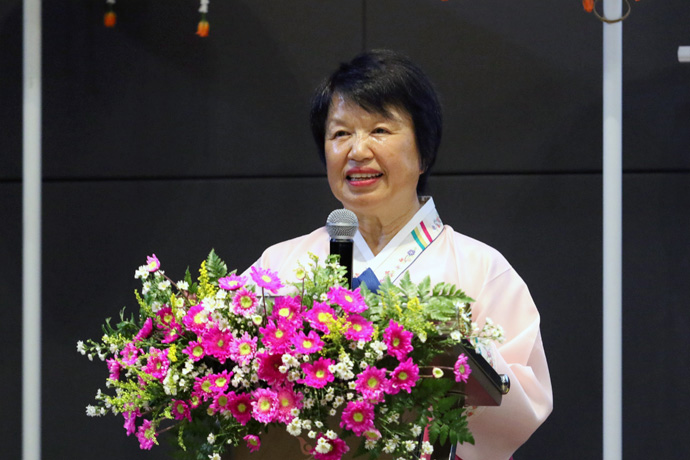
The history of The Upper Room dates back to the early 1930s, when a group of women at Travis Park Methodist Church in San Antonio prayed for a devotional guide for the daily discipline of reading Scripture, praying and sharing in faith with other Christians. Their prayer was answered when the first issue was published in April 1935.
The devotional soon became a global phenomenon. Three years after the first printing in English, it was translated into Hindustani, Spanish and Korean in 1938, and Thai in 1953.
According to The Upper Room website, the daily devotional book is now translated into 34 languages and distributed in over 100 countries worldwide with a bimonthly print circulation of over 2 million copies. It is estimated that over 8 million people read each daily meditation.
During her sermon at the worship service to celebrate the 70th anniversary of the Thai Upper Room edition, the Rev. Suksa Theparee of The Church of Christ in Thailand said, “Your work in preparing devotional and inspiring daily readings is a ministry of love and faith … . Keep sowing the seeds of hope, and may your work continue to draw people closer to God’s presence. You are making a difference in the lives of many.”
The Rev. Kimberly Orr, The Upper Room’s publisher, challenged participants to reimagine how to move forward in the call to carry the Good News of Jesus in a changing world. She also provided positive news that the sales of The Upper Room have increased.
“We have not seen any drop off from our subscription base after disaffiliation,” she said, “but for the first time in many years, our subscription base has gone up 1.5%.”
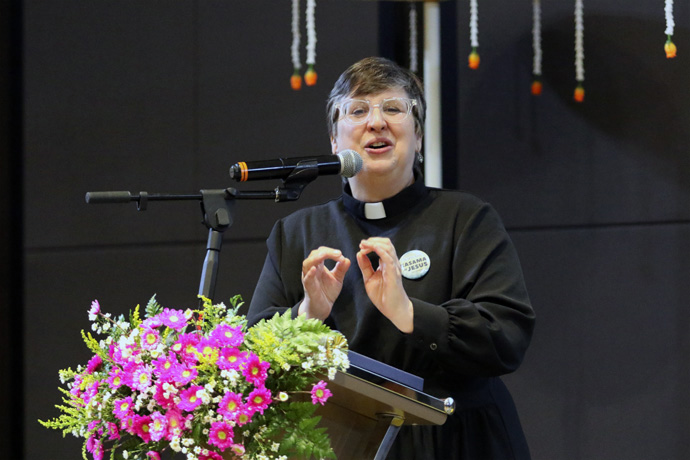
During a workshop called “Faithful Stewardship and Business Practice,” Peter Velander, executive director of Upper Room Publishing, encouraged and invited the participants to think about the business aspects of The Upper Room after saying that the United States is not the center of the world. “We have more to learn than we have to teach.”
He invited attendees to decide on what financial model to use to be the best stewards of the talent and resources available, and also asked them to think about how to put the devotional guide into the hands of the people — even if they cannot afford to buy it.
“We need not to feel guilty about finding ways to fund the ministry of publishing The Upper Room,” he said.
Sherry Elliot, who has worked with The Upper Room for 35 years, shared her experience in fundraising for the devotional, attracting donors and encouraging people to give.
“Fundraising is missional and meaningful as all other functions we do like preaching, translating, editing, marketing and distribution because you are casting a spiritual vision,” she said. “With meaningful missions, stories of blessedness and evidence of your good work, a good story encourages people to ask, ‘How can I help?’”
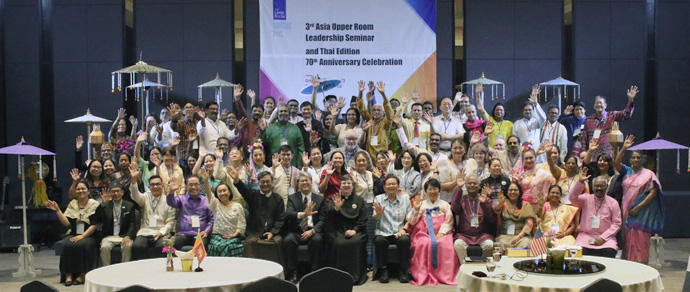
Andrew Breeden, one of the editors of the U.S.-English edition of The Upper Room, talked about the monumental task of producing a daily devotional. He said his office receives 3,000-4,000 meditations a year. He noted that The Upper Room tries to be inclusive and diverse in writers and content.
“Our goal is to have as wide and diverse a representation of writers as possible in theological perspective, geographic location, religious tradition, age and culture,” he said.
Breeden also introduced a new audio edition of The Upper Room, available on the daily devotional guide website and for purchase as downloadable mp3 files.
Subscribe to our
e-newsletter
“I am caught up in something larger than myself,” he said. “I think at the end of the day that this keeps me going and passionate about my work. The Upper Room makes a difference in the spiritual lives of our readers.”
With editions in more than 30 languages, a commitment to accurate and effective translation is vital.
Jorge Berríos, editor of El Aposento Alto, the Spanish edition of The Upper Room, and director of International Relations for Latin America and the Caribbean, encouraged participants to consider several aspects of the translating process with practical guidelines.
He emphasized unique cultural language considerations and the need to pay attention to the connotation that a word could have in the translator’s culture and context.
With wisdom gleaned from 21 years as a translator and editor, Berríos asked the participants, “How can this be said in a style that is both authentic and as close as possible to the original?”
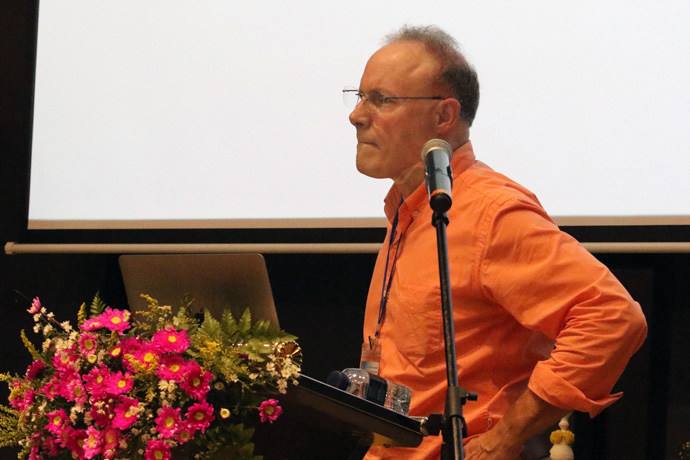
Staff from the Nashville, Tennessee, Upper Room office met with each of 12 language groups during the seminar. They listened to, discussed and shared their ministries, concerns, plans and strategies for 2024.
The Rev. Joel Bengbeng, superintendent of the Ilocos South District in the Philippines, said that he enjoyed the spirit of the in-person gathering. Bengbeng, who has previously provided translation for The Upper Room, said the workshops were “adaptable and relevant to our context” in the Philippines.
“I felt the spirit of collegiality and respect for diversity, different cultures and languages,” he said. “Especially when Peter (Velander) confessed the sins of imperialism and racism, it opened our hearts and minds to the program.”
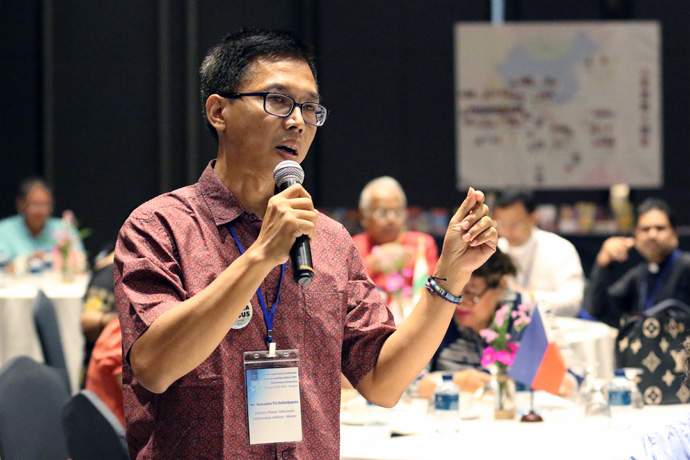
Dr. Caroline Hla Aye from Myanmar said this event helped “connect the dots” for her and the team of the Myanmar Upper Room. She said they have already developed a strategy for the 2024 budget, and how to talk to others about the devotional.
“The vision of The Upper Room is changing life, which is transformational,” she said. “When I listened to Peter five years ago in Seoul, Korea, I wasn’t sure how to do it. But now we can understand his presentation and draw the big picture of fundraising and how to improve marketing for God’s ministry.”
Kim is director of Korean and Asian news at United Methodist Communications. Contact him at 615-742-5470 or newsdesk@umcom.org. To read more United Methodist news, subscribe to the free Daily or Weekly Digests.

